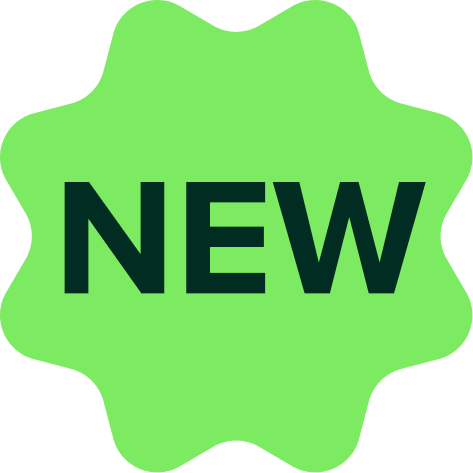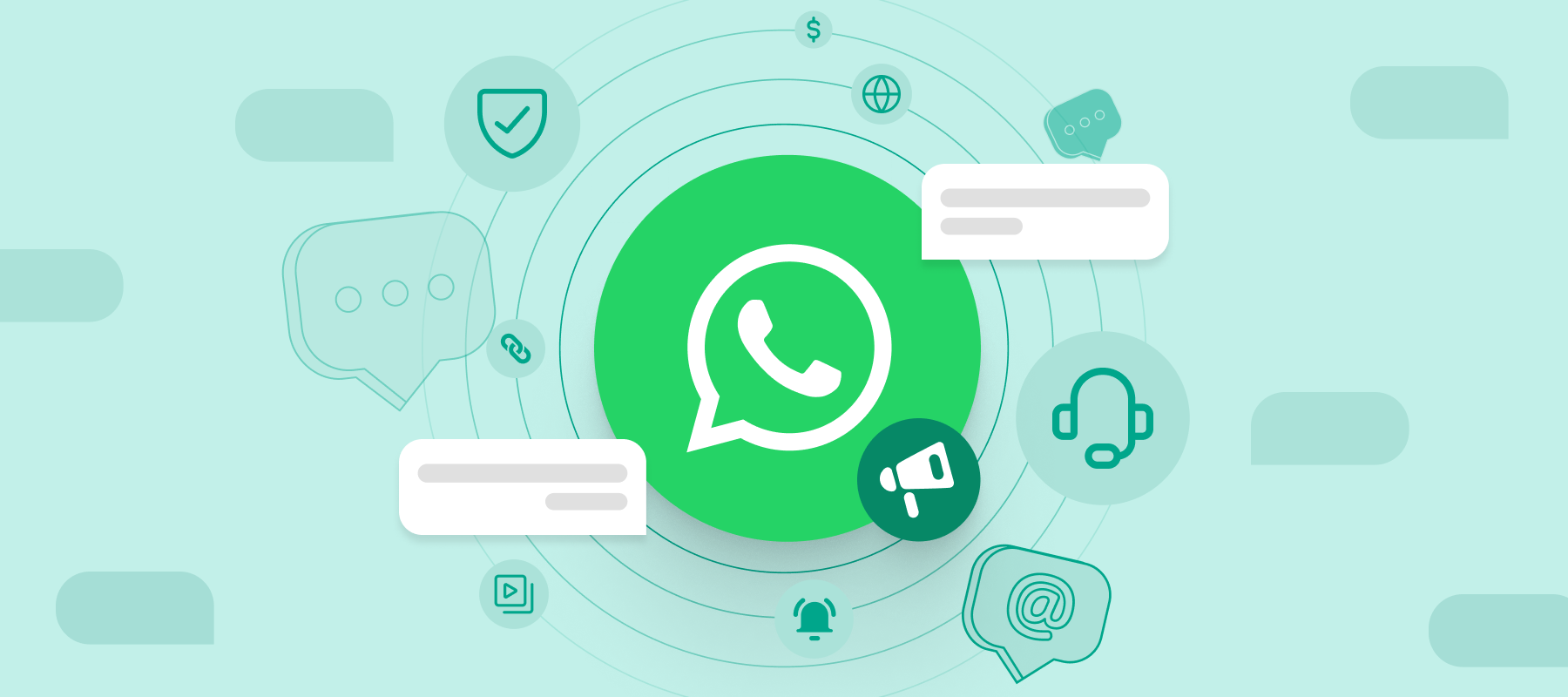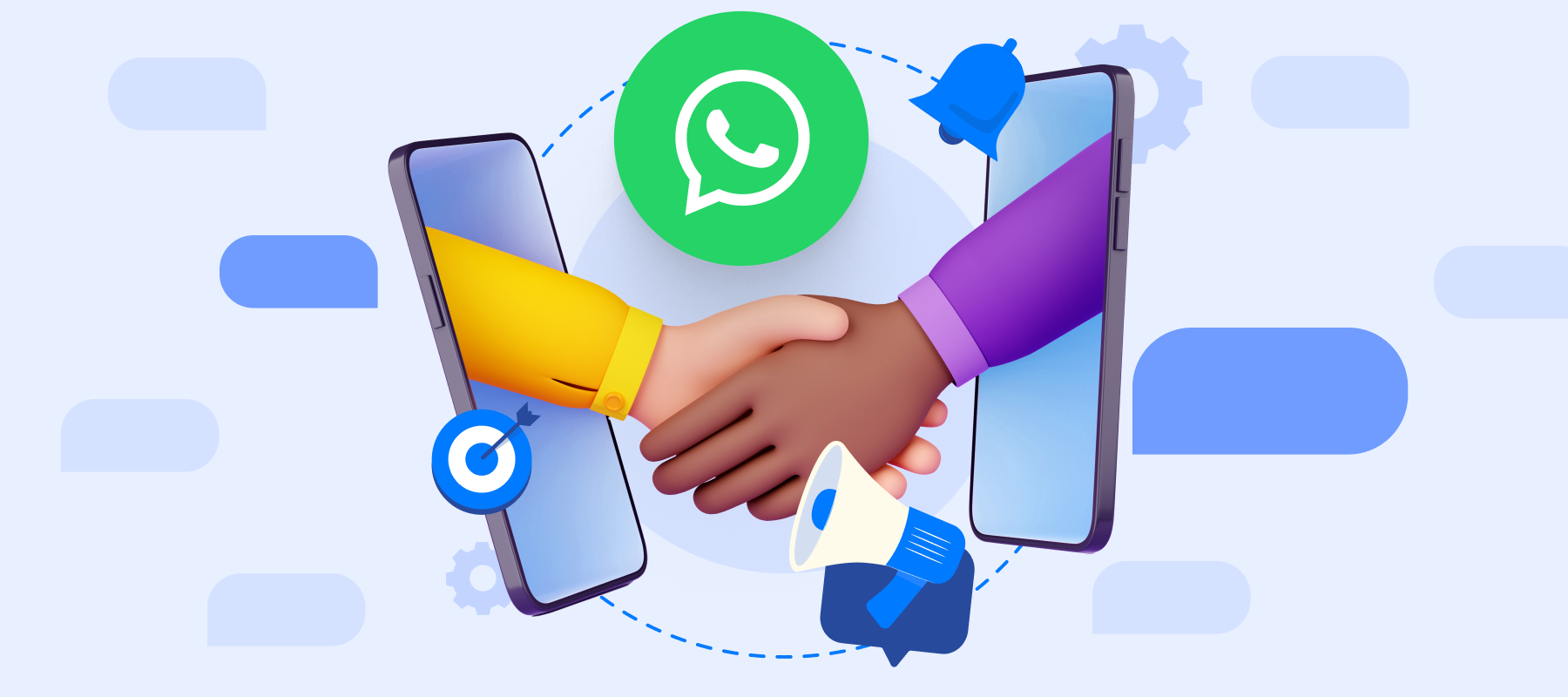WhatsApp has become an essential tool for businesses across industries, offering a direct and effective way to connect with customers. With over 2.95 billion monthly active users and 50 million businesses using WhatsApp Business, its reach is undeniable.
However, being on the platform isn’t enough to stand out and achieve meaningful engagement. You need to follow a few proven best practices to maximize your results.
In this post, we’ll share these strategies to help you maximize your WhatsApp marketing efforts.
Best Practices for Setting Up Marketing on WhatsApp
Here are some of the best practices for WhatsApp marketing:
1. Set Up a Professional Business Profile
Ensure your WhatsApp Business profile is fully set up and professional to make a strong first impression. You can create a verified business profile using WhatsApp Business or the API.
Your profile should include your logo, a brief but informative business description, contact details, and a link to your website. This will provide a clear, trustworthy point of contact for customers and improve your credibility.
2. Obtain Explicit Consent
Before messaging potential customers, always ensure you have their explicit permission.
Implement opt-in methods, such as the website chat widget, notification forms, pop-ups, and other tactics. This will keep you compliant with privacy laws and build a more engaged audience.
3. Segment Your Audience
Not all customers are the same, so grouping them based on factors like demographics, preferences, or purchase history can help you send more personalized and relevant messages.
For example, a skincare brand might segment its audience into groups like anti-aging skincare users, acne-prone skin customers, or first-time buyers. This ensures that each message resonates with the recipient, leading to higher engagement.
4. Create Valuable Content
Instead of focusing solely on sales, use WhatsApp to offer valuable solutions or information. For example, an educational business can send invites for free expert advice sessions, webinars, or workshops.
This builds trust and provides value to your audience. Just be sure not to overwhelm them—keep your messages timely, relevant, and focused on their needs.
5. Use Multimedia Strategically
Let’s face it—everyone loves visuals!
Incorporating images, videos, voice notes, or PDFs into your WhatsApp marketing messages can significantly improve engagement and WhatsApp open rates. Whether it’s a product demo, tutorial, or catalogue, visuals help capture attention and convey your message.
6. Leverage Automation
Automation can be a game-changer for WhatsApp marketing.
Did you know that 90% of customers expect an immediate reply on messaging platforms?
Chatbots are a great way to meet this demand. They can handle everything from frequently asked questions to lead qualifications. You can save time with quick replies and automated follow-ups while promptly ensuring your customers get the answers they need.
7. Provide Exclusive Deals
People love feeling like they’re part of an exclusive club. Offering special deals or early promotion access can greatly incentivise customers to join your WhatsApp list.
Research shows that 80% of consumers are more likely to purchase when they feel they’re receiving an exclusive offer. This not only brings conversions but also increases customer loyalty.
8. Ensure Timely Responses
Responding quickly to customer inquiries is key to building trust and increasing engagement. WhatsApp’s automated greetings and away messages help set clear expectations.
A simple “Thank you for reaching out! We’ll get back to you within 24 hours” shows professionalism and ensures customer satisfaction, even when the customer is unavailable. This approach increases WhatsApp open rates and makes WhatsApp marketing more effective.
9. Track and Optimize Campaigns
Track key metrics like delivery rates, open rates, and conversions to make the most of your WhatsApp marketing. Use this data to optimize campaigns by testing different message formats, content, or timing.
For example, experiment with sending product promos at different times of day to see when your audience is most responsive. Analysing these insights will help you improve your WhatsApp marketing strategy and engagement rates.
10. Respect Customer Privacy
No one likes to be bombarded with unwanted messages, and respecting your customers’ privacy is key. A simple, easy-to-use opt-out option builds trust with your audience.
Additionally, ensuring compliance with data protection laws like GDPR or CCPA protects your brand and strengthens your customer relationship.
Ways To Setup WhatsApp Marketing
Here’s a look at the most popular ways to set up WhatsApp marketing:
Way 1: WhatsApp Business App
If you’re just starting or have a small business, the WhatsApp Business app is a great place to begin your WhatsApp marketing efforts.
It’s easy to set up and offers features like quick replies, labels, and a customisable business profile. These features make managing customer interactions simple, staying organised, and responding quickly to inquiries—perfect for businesses in their early stages.
However, you might hit some limits as your business grows and your customer base expands.
The WhatsApp Business app is designed for smaller-scale operations, so it might not be enough if you begin handling a higher volume of messages or need advanced tools like automated workflows, CRM integrations, or the ability to manage multiple users.
This is when you consider upgrading to the WhatsApp Business API to scale your marketing efforts and effectively handle more complex needs.
Way 2: WhatsApp Business API
The WhatsApp Business API is the perfect solution for larger businesses or those looking to scale their WhatsApp marketing efforts.
Unlike the WhatsApp Business app, which is more suited for small-scale operations, the WhatsApp Business API offers advanced features like automation, CRM integrations, and enhanced scalability, making it ideal for businesses with higher message volumes or more complex needs.
Here’s what you can do with the WhatsApp Business API:
1. Automate Campaigns
Use AI-powered tools like Interakt’s Concierge to recommend campaigns based on CTR, optimising strategies for higher ROAS.
2. Set Automated Flows
Automate workflows after customer responses, including opt-ins, auto-replies, and sending catalogues, saving time and increasing efficiency.
3. Segment and Retarget
Segment customers for targeted campaigns and retarget leads from Click to WhatsApp Ads, pushing them further down the sales funnel.
4. Transform Conversations into Sales
Send back-in-stock alerts, recover abandoned carts, and share timely offers to drive conversions.
5. Engage with Rich Media
Use images, videos, and interactive elements like CTA buttons and quick replies to make your messages more engaging.
6. Monitor Campaign Performance
Track key metrics like messages sent, delivered, read, and replied to, optimising campaigns based on performance insights.
The WhatsApp Business API offers the automation and scalability necessary for larger businesses to manage complex marketing workflows, engage customers effectively, and drive sales conversions.
Conclusion
If you’re ready to scale your WhatsApp marketing, you need to leverage the WhatsApp Business API.
It’s perfect for automating workflows, running targeted campaigns, and staying connected with customers. Whether sending personalized offers or tracking campaign performance, an API solution provider like Interakt can help you stay ahead of the game.






